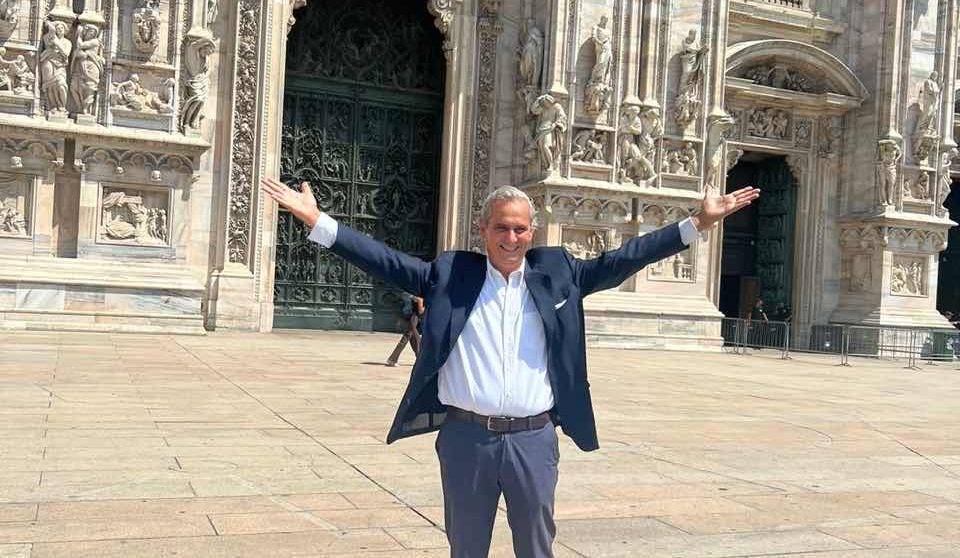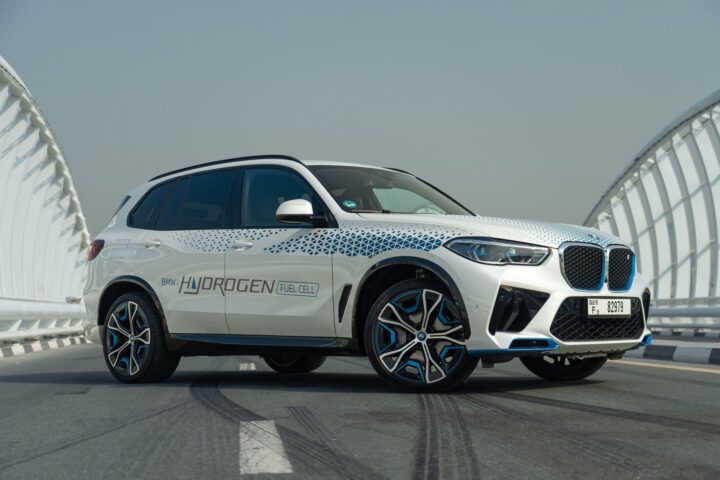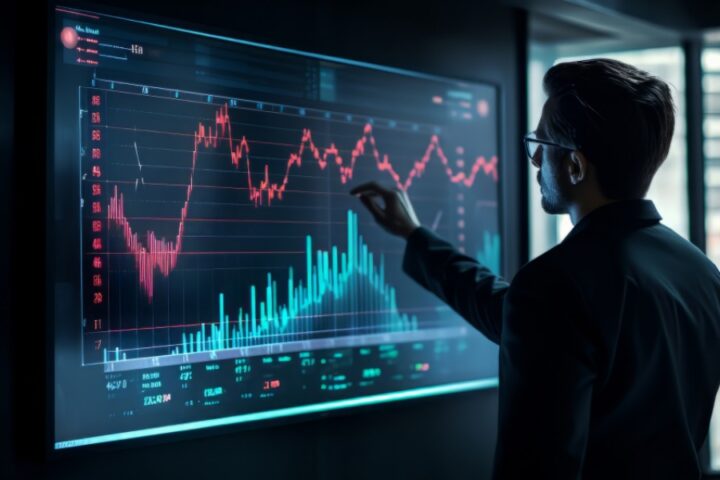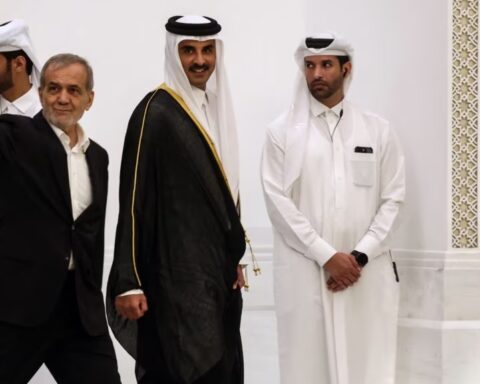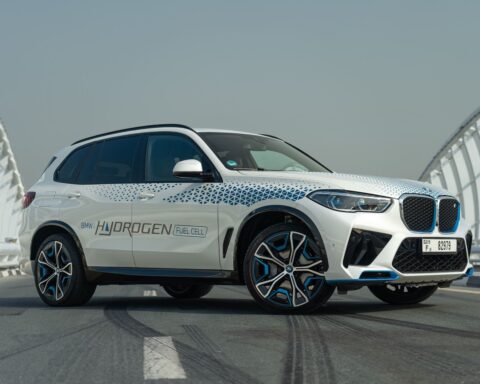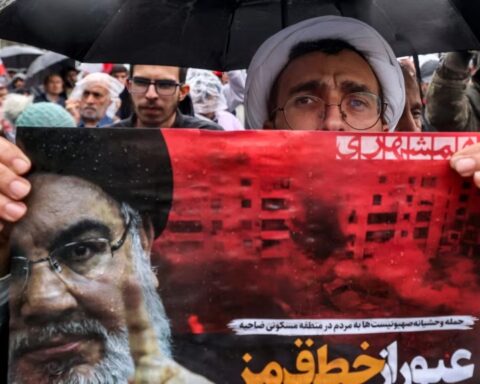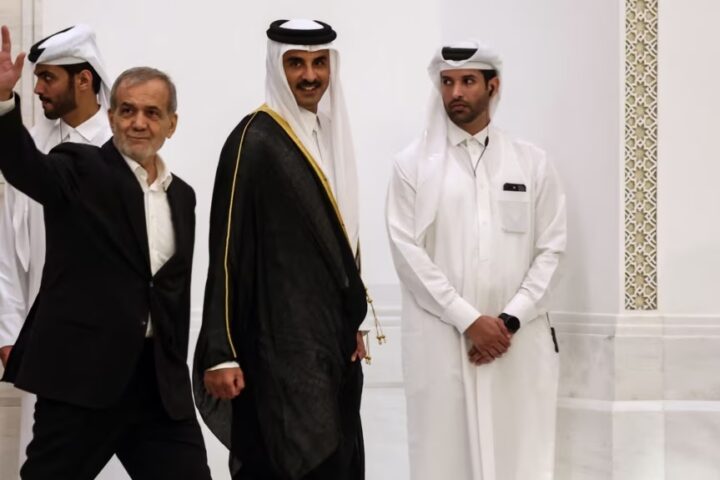Italy’s iconic fashion houses are now a mainstay of Alibaba Group’s digital marketplaces, with the likes of Armani, Prada and Moncler all operating flagship stores on the platform.
Smoothing Italian companies’ journey within the Alibaba ecosystem is Rodrigo Cipriani Foresio, who opened the platform’s Milan office in 2015 and is now General Manager of Alibaba Group in South Europe.
Cipriani arrived at Alibaba fresh to e-commerce. Yet his background in media, advertising and government relations has proved invaluable in expanding the group’s network. Over $3 billion of Italian goods were sold on Alibaba’s platforms in 2021, up more than tenfold in just seven years.
Alizila caught up with Cipriani in Milan to find out how Alibaba became so quickly and deeply entrenched in Italy.
What was it like in Alibaba’s early days in Italy? How did you get things started?
The mission from day one was to select the best Italian brands and bring them to China. And so I wanted people who could help me recruit brands from the sectors Italy is best known for, the “three Fs” – fashion, furniture and food. I selected one expert with relationships in each.
I had a lot of contacts from having worked at Italy’s largest broadcaster Mediaset and at Europe’s biggest film studio, government-owned Cinecittà.
Those contacts were important because Alibaba wasn’t known very well in Italy when we first opened here. People knew who Jack Ma was, but not Alibaba.
How difficult was it to get Italy’s big brands on board?
Eight years ago, Alibaba’s reputation among the big Italian brands was not strong, before the group became very effective at using machine learning and big data to crack down on counterfeit goods sold on its platform.
The first thing I needed to do was build trust, which you do by executing well. We now have over 700 flagship stores of brands from Italy, Spain, Portugal and Greece on the B2C marketplace Tmall. We went from handling $200 million in gross merchandise value (GMV) of Italian brands when I started to over $3 billion in 2021.
We had some huge successes almost immediately, which helped build momentum. For example, when Maserati made its debut on Tmall in March 2016, it sold 100 SUVs through our platform in just 18 seconds. That story made headlines around the world. The year after, we sold 350 Alfa Romeos in 33 seconds.
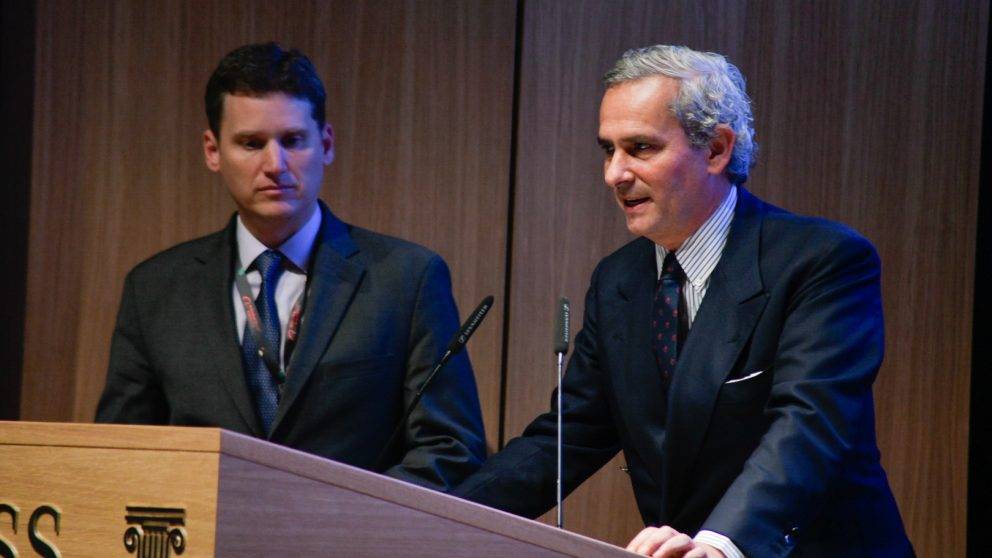
How have you approached working with the Italian government?
Jack Ma has had four meetings with Italian Prime Ministers. We signed a landmark agreement on intellectual property rights with Italy’s Ministry of Economic Development.
We also inked a unique memorandum of understanding with the Ministry of Agriculture to promote and protect the ‘Made in Italy’ designations and geographic indications of agricultural products such as Chianti DOCG and Prosecco wines, Tuscan Extra Virgin Olive Oil and cheeses such as Parmigiano-Reggiano, Pecorino, Gorgonzola, and Mozzarella di Bufala Campana.
At several conferences, Italian ministers have acknowledged Alibaba’s role in protecting the country’s brands, which gives us a lot of credibility.
We have also built a strong relationship with the Italian trade agency, which funded the creation of dedicated pavilions for Italian products first on Tmall, called HelloITA, then the Italian Pavilion on Alibaba.com.
All of this demonstrates how successful Alibaba has been in establishing a close relationship with the Italian government.
Our mission is to help Italian SMEs to go digital and boost exports – something the government cares deeply about. It also helps that Italian sentiment towards China is positive: we are pragmatic, and we want to do business.
How have Italian luxury brands evolved in the digital age?
I have seen incredible change. Six years ago, luxury fashion brands like Armani hardly had an e-commerce presence, but today it operates eight flagship stores on Tmall. They didn’t seem to believe in it or were perhaps afraid. Now they all boast about their e-commerce accomplishments and are working towards ‘new retail’ integration of their online and offline stores.
Apart from bringing Italian brands to China, what were your other major responsibilities?
Our second mission was to expand the Alibaba ecosystem in local markets. We began with Alipay, which we have brought to Italy, Spain, Greece and Portugal. Then we focused on bringing AliExpress to Italy and expanding it in Spain. Moreover, we launched, first in Europe, our B2B international marketplace locally and now Italy is the European Hub for Alibaba.com.
Our third mission was to spread knowledge about Alibaba among local media and to build relationships with the government.
Why do you think China and Italy have such a constructive relationship?
Chinese and Italian cultures have a lot in common, and it’s a relationship that dates back to Marco Polo and Matteo Ricci. We are both very flexible people, and we have similar attitudes toward family. Although people in China often work long hours and families can be spread across different provinces, when there is a holiday they often converge on their grandparents’ homes. Family is very important for Italians as well. These cultural factors help us build a stronger relationship.


